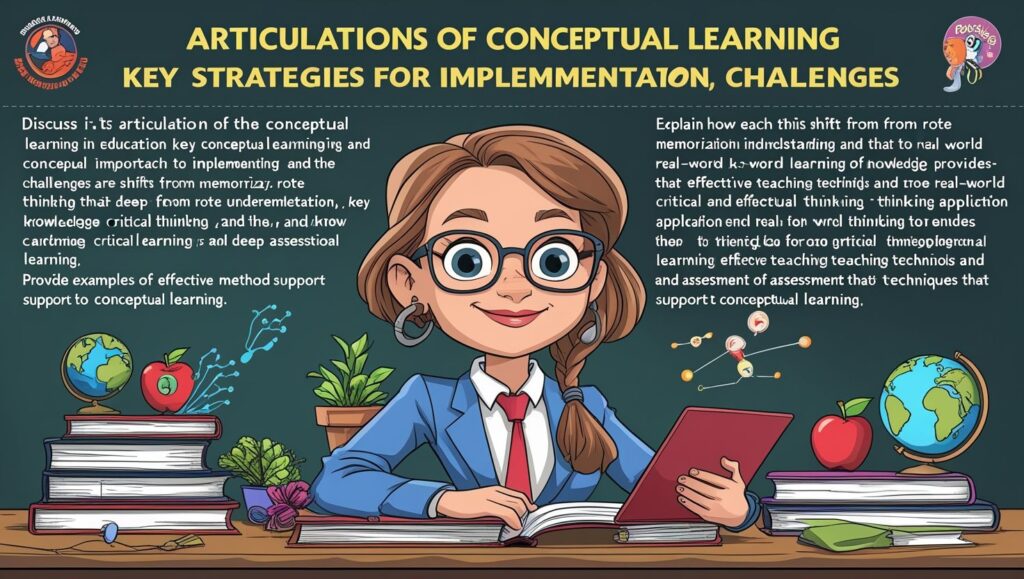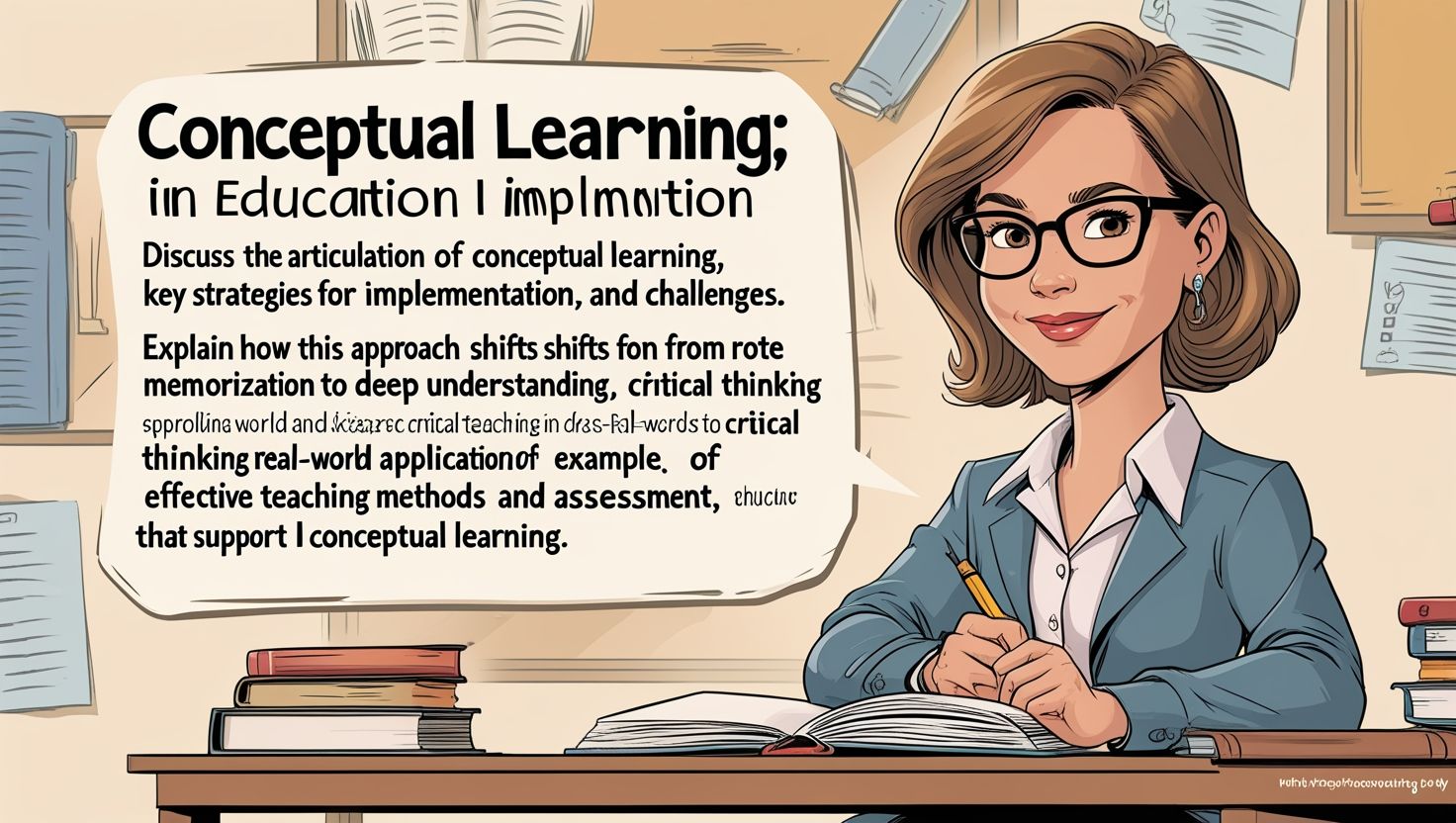Introduction
Articulation of Conceptual Learning in Education, Conceptual learning in education refers to an instructional approach that emphasizes understanding broad principles and ideas rather than rote memorization of facts. It enables students to grasp underlying concepts, apply knowledge across contexts, and develop critical thinking skills. The articulation of conceptual learning involves designing curricula, teaching strategies, and assessments that foster deep comprehension. This article explores the significance of conceptual learning, its implementation in education, and its impact on student development.
The Importance of Conceptual Learning
Traditional education often prioritizes memorization, which limits students’ ability to transfer knowledge to real-world situations. Conceptual learning, however, encourages learners to connect ideas, identify patterns, and synthesize information. This approach enhances problem-solving abilities and promotes lifelong learning. By focusing on core principles, students develop a robust intellectual framework that supports advanced academic and professional pursuits.
Moreover, conceptual learning aligns with modern educational demands, where adaptability and analytical skills are crucial. In a rapidly evolving world, students must understand foundational concepts to navigate new challenges effectively. Educators play a pivotal role in facilitating this by integrating interdisciplinary connections and real-world applications into lessons.
Strategies for Implementing Conceptual Learning
To effectively articulate conceptual learning, educators must adopt student-centered pedagogies. Some key strategies include:
- Inquiry-Based Learning – Encouraging students to ask questions, explore hypotheses, and discover knowledge through investigation.
- Concept Mapping – Using visual diagrams to illustrate relationships between ideas, reinforcing understanding.
- Problem-Based Learning (PBL) – Presenting real-world problems that require students to apply conceptual knowledge.
- Scaffolded Instruction – Gradually increasing complexity to help learners build on prior knowledge.
- Collaborative Learning – Promoting peer discussions to deepen conceptual understanding through diverse perspectives.
Additionally, assessments should move beyond standardized tests to include projects, presentations, and reflective essays that measure conceptual mastery.

Challenges and Solutions
Despite its benefits, implementing conceptual learning faces obstacles such as rigid curricula, standardized testing pressures, and varying student readiness levels. To overcome these challenges, schools should provide professional development for teachers, integrate flexible learning models, and advocate for policy changes that support conceptual education.
Conclusion
Conceptual learning transforms education by fostering deep understanding and intellectual agility. By prioritizing meaningful comprehension over memorization, educators can equip students with the skills needed for future success. The articulation of conceptual learning requires intentional pedagogy, innovative assessment methods, and systemic support to ensure its effectiveness in modern classrooms.

Die Snacks an der Kasse sind frisch zubereitet und
werden in ordentlichen Portionen angeboten, auch wenn die Preise
etwas hoch sind. Ob Sie sich für neue Blockbuster, bewegende Dramen oder lustige Animationsfilme für die ganze Familie interessieren, auf unserer Website finden Sie immer
die neuesten Premieren. Dank unserer Plattform können Sie ganz einfach herausfinden, welches Kino in Ihrer Nähe die neuesten Blockbuster zeigt und welches sich auf die Vorführung von Independent-Filmen oder Klassikern spezialisiert hat.
Auch die Erkundung verschiedener Regiestile kommt nicht zu kurz, von klassischen Erzählungen bis hin zu Experimenten mit Form und Inhalt.
Es befindet sich in Meiningen, mit der vollständigen Adresse
von Wettiner Straße 1 B, Meiningen. Wir freuen uns über Ihr Feedback.
Erleben Sie Kino in seiner besten Form – im traditionsreichen und topmodernen Casino-Kino Meiningen!
Aus diesem Grund ist cinetixx Filme ein Ort,
der eine Fülle von Perspektiven und Möglichkeiten für alle Filmliebhaber bietet.
Beim Durchstöbern unserer Angebote haben Sie die Möglichkeit, eine Vielzahl von Filmgenres zu entdecken, von Dramen über Komödien und Horrorfilme bis hin zu Romanzen.
Ob Sie nun epische Meisterwerke mit großen Budgets oder
subtile, intime Independent-Filme bevorzugen, unsere Datenbank bietet eine Fülle von Inhalten, die Ihr Herz
und Ihren Geist berühren werden.
References:
https://online-spielhallen.de/drip-casino-freispiele-alles-was-sie-wissen-mussen/